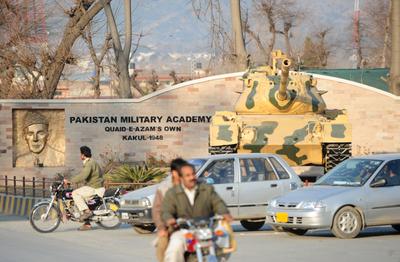But that does not change much. The Afghan endgame has been in play at least since the death of Osama bin Laden.
On the surface, Pakistan appears to be a highly dysfunctional country caught up in the current ‘AfPak’ uncertainty, and poorly positioned to benefit from the endgame. Commentators have predicted Pakistan’s demise on numerous occasions. It is perilously poised between a dysfunctional civilian government and an army reluctant to seize power but willing to shape events from the wings. It is also beset by terrorist and insurgency violence, has a failing and near-bankrupt economy and shocking social-sector indicators.
No sensible analyst would claim Pakistan’s problems are anything but serious. But behind the dirty windows of Pakistan’s facade, some other salient points pertinent to the final outcome in Afghanistan need to be considered.
First, we need to ask how a country so apparently dysfunctional as to be on the point of collapse could have ‘played both ends against the middle’ so successfully for so long. Pakistan has run a proxy war against India involving the blatant harbouring of terrorists, hosted the so-called Quetta Shura of the Afghan Taliban leadership, and possibly had governmental knowledge of the whereabouts of bin Laden, the man who was responsible for nearly 3000 American deaths. Pakistan also kept close tabs on and provided support to the Haqqani network, a feared Afghan insurgent group which was complicit in the bombing of the Indian embassy in Kabul. Finally, Pakistan built one of the most formidable nuclear arsenals in the region and managed to run a long-term strategic relationship with China, which has provided, inter alia, the design of Pakistan’s nuclear weapons and a certain counterbalance to India. Pakistan achieved all of this while simultaneously remaining a beneficiary of considerable Western, especially US, largess and managing to avoid outright war with India.
The picture of a nation possessing such capability alongside one of complete dysfunctionality just does not add up. How can this puzzle be explained? One guess is that while Pakistan’s ‘success’ in its dual role has something to do with circumstance, it has more to do with the nature of its elites.
The circumstantial factors are more obvious and less controversial. Pakistan is too important to let fail because of its nuclear status, its key location as the central entrepôt for Afghanistan and the need to cooperate with its intelligence over terrorism targeting the West. It is also favourably located in respect of China’s competition with India.
But its successes — if they can be called that — are surely based on more than position. At some level within the Pakistani state there must be a consensus on key strategies, one that has been in place for many years and has, at least superficially, served the country well. The key here could be the army, its hold on power either in or outside the government and its key instrumentalities such as the Inter-Services Intelligence. The army is arguably Pakistan’s ‘steel frame’, providing a proving ground of talent in an otherwise feudal set-up. It is more than capable of discerning and exercising both its own key strategic interests and those of the country.
That explanation may be important but it is not sufficient. Somehow, elite ‘management’ of Pakistan appears to go beyond the army and into business and government — although in this milieu it becomes far less functional. There may be an elite compact to keep the struggle with India alive and Islamisation in view but not quite in reach, to protect and benefit from Pakistan’s nuclear umbrella, and to ‘manage’ Pakistan’s complex set of regional and global relations. This agreement seems bipartisan between all shades of the government and army. It also involves a considerable degree of elite talent at diplomacy — witness the current foreign minister and new ambassador to Washington.
Whatever the explanation, the important point is that Pakistan should not be underestimated because of the seemingly shambolic nature of its polity. It now finds itself relatively well positioned for the Afghan endgame. Whatever disposition finally rules in Afghanistan, Pakistan will be far from isolated or deprived of options. India’s strategic involvement, on the other hand, offers nothing but pain. If Kashmir is difficult for India — and it is — Afghanistan after NATO would be more so, should New Delhi choose to remain strategically engaged.
Of course, all bets would be off if the elite’s domination of Pakistan were to crumble. While this may be a distinct longer-term possibility, we also need to consider the elite’s past successes, at least as they perceive their interests on a relatively superficial level.
Sandy Gordon is Visiting Fellow at RegNet, College of Asia and the Pacific, the Australian National University.
An earlier version of this article was first published here on Future Directions International.

